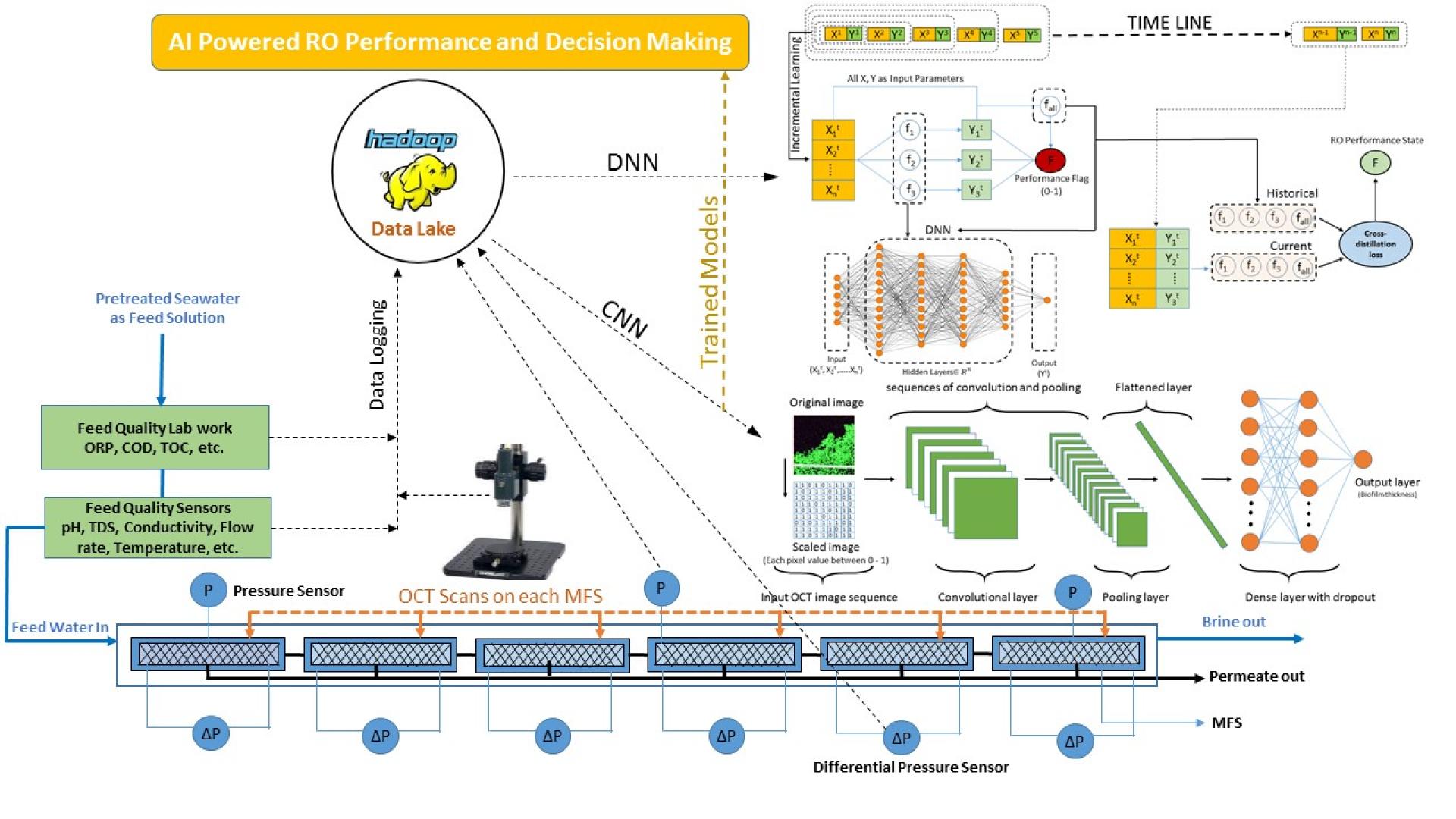Reverse Osmosis (RO) is commonly utilized for obtaining pure water for drinking and industrial purposes. The RO plant performance is continuously monitored by tracking pressure drop, permeate flow and salt passage. These indicators are directly reflective of growing (bio)fouling, scaling, or membrane deterioration occurring inside the module channels. Numerous input parameters affect the RO (bio)fouling propensity, including membrane properties, feed water quality and process parameters. Continuous monitoring of feed water quality and its functional parameters is essential for RO plant operations. This work aims to establish deep neural networks models to unlock the dependency of RO process performance on various physical, biological and chemical process parameters. The effects of feed and process parameters, such as conductivity, oxidation reduction potential, total dissolved solids, turbidity and chemical oxygen demand, feed pressure, flow rate and temperature on RO performance considering salt passage, permeate flow rate, crossflow pressure drop and the pressure difference across membranes will be investigated using different machine learning tools. In addition, optical coherence tomography scans of growing (bio)films will also be studied by convolutional neural networks and direct quantification of type of biofilm and its characteristic effect on filtration input and output parameters would be investigated. The trained networks can then be utilized in a smart governance framework for efficient real-time performance evaluation and decision-making. As the Kingdom of Saudi Arabia is aiming to double its desalination capacity to approximately 12M m3/day within 6 years, relying on RO exclusively, this artificial intelligent framework will have a substantial impact on the cost and environmental impact of desalination.
Investigator:
